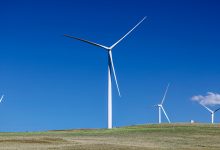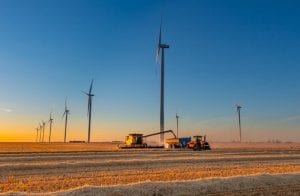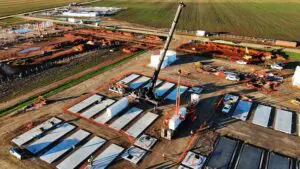Australia is not on track to meet targets under the United Nations Sustainable Development Goals (SDGs), and is missing out on the benefits of becoming a ‘fairer, greener, more prosperous nation’, a new assessment from the University of New South Wales as found.
The assessment, published in the journal Nature Sustainability, found that Australia is on track to achieve less than half of the key indicators under the Sustainable Development Goals and that by incorporating the goals into policy planning, Australian governments could achieve substantially better outcomes for Australian communities while having minimal impact on economic growth.
“Globally, the SDGs are important because we’re faced with the challenge of meeting the needs of a growing population of about nine to 10 billion people by 2050 in terms of employment, income, energy, food, water, minerals and other materials while keeping resource consumption and environmental impacts within our planet’s natural limits,” lead report author Cameron Allen said.
“Our results reveal that if Australia continues business-as-usual, we are off-track to achieving the SDGs in 2030 and would achieve about 40 per cent progress on all SDG targets.”
“In terms of the current federal government, I don’t think they’re particularly interested in the SDGs and I think this is definitely a missed opportunity,” Allen added.
The Sustainable Development Goals were adopted by countries through the United Nations in 2015, and sets out a series of 17 targets for global sustainable development, addressing environmental, economic, social and governance sustainability. Targets include commitments to develop affordable and clean sources of energy, as well as taking meaningful action on climate change.
While the goals have been recognised as a comprehensive set of targets that would substantially improve outcomes for communities across all countries, little by way of progress has been made by countries towards delivering on the goals.
While the UNSW assessment found that the Australia government has done little to incorporate the Sustainable Development Goals into policy development, it also found that there is an emerging trend of businesses and not-for-profit organisations integrating consideration of the Sustainable Development Goals into their operations.
Last month, the Sydney Opera House confirmed its commitment to the Sustainable Development Goals, as part of a wider sustainability plan that would see the iconic Australian venue effectively become ‘climate positive’ through investments in clean energy and energy efficiency.
“The fixation on a ‘jobs and growth’ agenda – a ‘growth at all costs’ mentality – has been the mainstream discourse in Australia for some time,” Allen said.
“But, there’s rapidly growing interest in the SDGs from business and civil society, so I believe our research will generate a bigger impact amongst these communities and ultimately, if there’s strong interest from the private sector then this will have a greater impact on government.”
The UNSW researchers examined four scenarios, based around a more environmentally sustainable Australia and a more equitable, ‘fairer’, Australia, that would require governments to prioritise the Sustainable Development Goals.
The ‘business-as-usual’ approach, which would continue Australia’s ‘growth at all costs’ approach to economic development would allow Australia to achieve less than half of the sustainable development goals, while also driving increases in poverty and inequality, as well as pushing up Australia’s greenhouse gas emissions.
“We found that focusing on more rapid economic growth alone delivers little improvement on the SDGs – about 42 per cent fulfilment under ‘Growth at all Costs’ – while inequality and poverty increase, improvements in life expectancy are slower, and greenhouse gas emissions accelerate,” Allan said.
The researchers found that it would be possible to achieve 70 per cent of the sustainable development goals by 2030, with minimal impact on the strength of the economy.
“GDP growth overall is lower, but GDP per capita is higher, along with higher income equality, reduced poverty and lower greenhouse gas emissions,” Allen said. “Although, there are trade-offs to weigh up and manage; for example, government debt is higher in the Sustainability Transition scenario.”
“But, by integrating economic, social and environmental objectives, the SDGs provide us with a coherent framework to support these decisions.”
“Our so-called ‘lucky country’ has enjoyed 28 years of uninterrupted economic growth – but few people are aware that future generations of Australians face the prospect of being worse off as a result of rising inequality, persistent poverty, cost of housing and living pressures, environmental degradation and climate change,” Allan added.
A senate inquiry into Australia’s progress towards meeting the Sustainable Development Goals, which delivered recommendations in late 2017, found that the goals generally aligned with Australian values and that there would be benefits in aligning government policy with achieving the goals.










